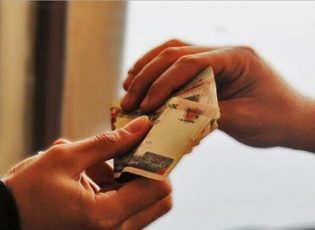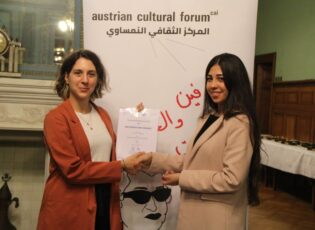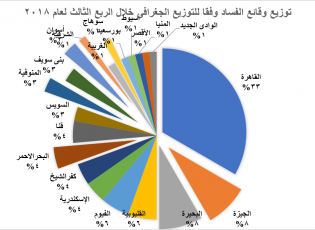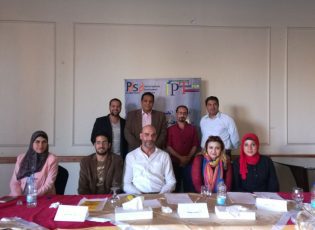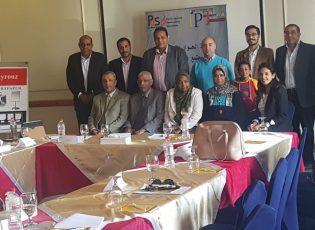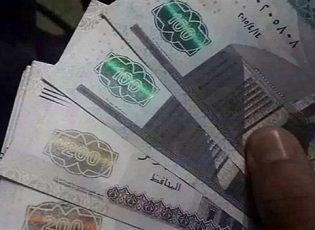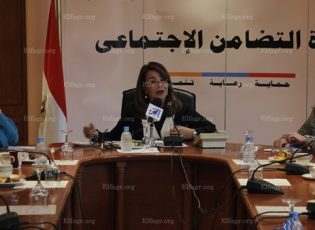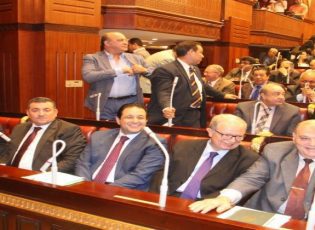Al Bawaba News: Friday 09/23/2016 04:25 AM
Ihab Kasib and Hanin Al-Salamouni
The legal term of the National Council for Human Rights has expired, and the controversy surrounding the Council’s activity and its performance in relation to the promotion and improvement of human rights conditions in various political, civil, economic and social fields has not ended. In this context, the portal asked 6 organizations and experts in the field of human rights, a question related to By evaluating the performance of the council and the reasons that led to what can be described as the council’s absence from the scene in general, and the absence of any role mentioned in the field of improving human rights conditions as described by many human rights organizations, here are their opinions.
Saeed Abdel-Hafez, head of the Dialogue Forum for Development and Human Rights, says that the council's performance is poor as a result of its formation, which included many unqualified figures, pointing out that the council was subject to blackmail by some political and human rights currents.
On the role of the Council in the issue of enforced disappearance that was promoted by some and traded by others in the face of the state and the current political system, Abdel-Hafez emphasized that the council’s role in this issue was positive, neutral and substantive to a large extent.
The head of the Dialogue Forum for Development and Human Rights called for the speedy completion of the approval of amendments to the law that regulates the work of the Council, so that we do not stand in the "hole" of members who do not have any human rights background, stressing the need for the new formation of the Council to include figures who have a lot of experience in human rights work. And that their ultimate goal is to recover human rights from state institutions.
The head of the Dialogue Forum for Development and Human Rights nominated the human rights activist Dr. Abdullah Khalil to the membership of the National Council for Human Rights during the next stage, because he is a person with experience in the field of human rights and is able to strengthen the role of the Council and enable it to play its role in improving and developing human rights conditions.
For his part, Dr. Walaa Jad al-Karim, Director of Partners for Transparency, said that the National Council for Human Rights was more political than human rights in its performance, and this is one of the reasons for its failure to improve human rights as a human rights institution, and referred to the politicization of the Council by leftists And some from the Muslim Brotherhood and a number of members of the current regime.
In statements to Al-Bawaba, Jad Al-Karim confirmed that the council did not ask for real legislative reforms during the prison visits it had made during the past three years. He also stressed the need to put an end to the statements that the council awaits for approval of prison visits by the Ministry of Interior and the Attorney General, because that is It is considered one of the most prominent reasons that led to the weakness of the council and affirmed its lack of resourcefulness. He continued his attack, saying: The council is just a "postaji" who used to receive complaints from the families of the forcibly disappeared, to deliver them to the Ministry of Interior, then he responded by notifying the Ministry of Interior to the people again.
The director of the Partners Foundation for Transparency stressed the need to change the law, and stipulate that the council be tried if it neglects any of the rights that were supposed to be upheld, but rather increased and took powers that would qualify it for objective work.
He indicated that the council should be completely independent, and include a number of its members who are technically competent and cadres with experience in the files of freedoms and human rights, and he called for the inclusion of a number of jurists and international law experts such as Dr. Muhammad Nour Farhat, who can change the shape and performance of the council, and from Then to achieve successes and achievements in this file, especially since the council, in its current formation, is considered a political quota system that works behind its personal ambitions and political benefits and does not work as a human rights institution.
In the same context, Dr. Ashraf Al-Da`da, the former advisor for human rights at the United Nations, said that the Council since its inception has been working well, and has been publishing reports confirming its follow-up to some human rights files, but recently it has become absent from the scene and does not exist in the workshops. And no special events in the field of human rights at the international or local levels.
For his part, lawyer Mahmoud El-Badawy, head of the Egyptian Association for Juvenile Aid and Human Rights, said that the formation of the National Council for Human Rights is predominantly political, and therefore their work was not limited to human rights conditions but was dominated by a political character, and then their work and results were not satisfactory. Or convincing, and therefore they had no role in promoting and improving human rights conditions.
Margaret Azar, deputy of the Human Rights Committee in the House of Representatives, says that the Egyptian street has not touched any real role for the National Council for Human Rights, because it did not care about economic and social rights, as it has focused during the past three years on political and civil rights.


